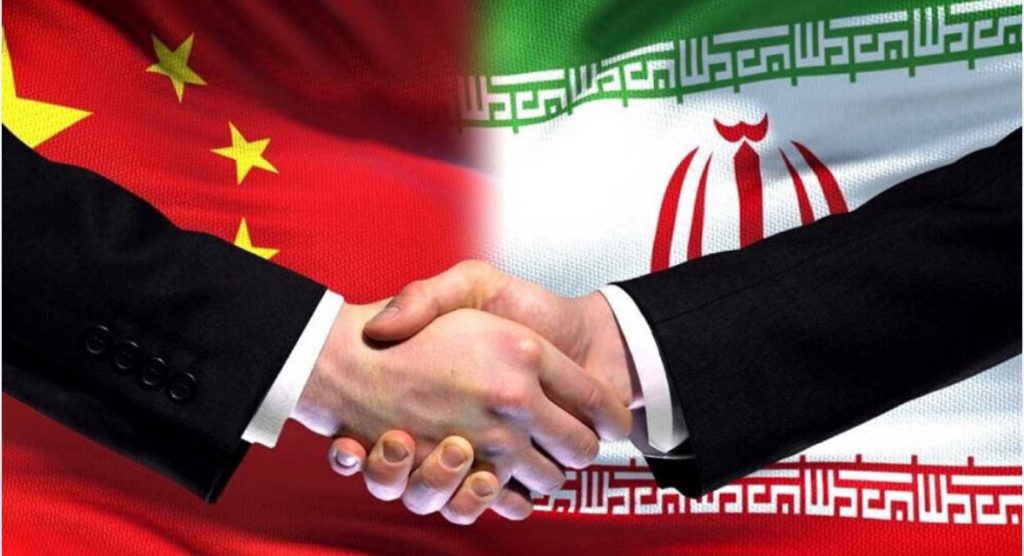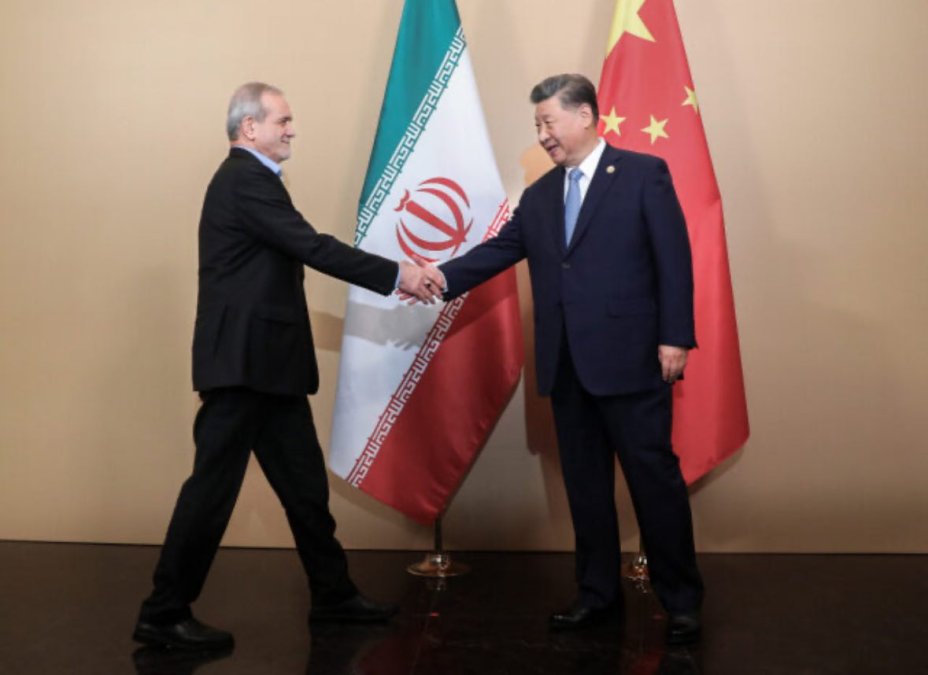Iran Isolated, China Cautious: Strategic Partnership or Temporary Deal
Iran Isolated, China Cautious: Strategic Partnership or Temporary Deal
Saeed Aghanji, a seasoned journalist and analyst in politics and media, currently serves as the editor-in-chief of IranGate News Agency. This media outlet, with an analytical approach and beyond daily news, strives to provide a clear and multi-layered picture of developments in Iran and the world.
Aghanji, relying on years of experience in the country’s media space and continuous interaction with international news agencies, plays a pivotal role in leading the IranGate editorial team. He aims to be an independent, accurate, and analysis-focused voice amidst a sea of news narratives. His presence at the helm of this organization not only reflects a commitment to professional journalism but also indicates an effort to redefine the boundaries of free reporting in conditions where media face unprecedented challenges.
The first trip of Iran’s new president to China is an attempt to strengthen eastern relations on the brink of the return of international sanctions.

Masoud Pezeshkian, Iran’s newly-appointed president, will attend the Shanghai Cooperation Organization (SCO) summit in Tianjin from August 31 to September 1 on his first official trip to China. This trip holds significance beyond a usual diplomatic visit for the Islamic Republic, given the sensitive domestic and international circumstances.
Pezeshkian is expected to meet and talk with powerful leaders of member countries at the summit, including Chinese President Xi Jinping and Russian President Vladimir Putin. These meetings could be decisive given Iran’s tense situation in foreign policy.
In Search of Eastern Support in Facing the West
After the 12-day war with Israel in June, Iran is facing a multifaceted crisis. On one hand, the increasing pressures from the West to contain Tehran’s nuclear program continue, and on the other, the country’s economy is severely eroded under sanctions.
In such conditions, the Islamic Republic needs the support of global powers, especially its eastern allies, more than ever.
The ‘Look to the East’ doctrine, established years ago by Ayatollah Ali Khamenei, the leader of the Islamic Republic, is being pursued in this context.
Joining the Shanghai Cooperation Organization and deepening relations with China, Russia, and other regional powers is one of the pillars of this strategy to counter the isolation imposed by the West.
Support for Tehran in the Nuclear Deadlock
Pezeshkian’s trip coincides with the threat from three European countries—France, Germany, and Britain—to activate the trigger mechanism. This mechanism could potentially reimpose all UN sanctions against Iran that existed before the JCPOA.
The European countries had previously set a deadline until the end of August for Iran to reach an agreement in negotiations with the United States, negotiations that effectively stopped after the recent war with Israel.
Tehran, rejecting the legitimacy of this action, emphasized that these countries lack the legal and moral authority to activate the mentioned mechanism.
China and Russia—both signatories of the JCPOA and permanent members of the Security Council—support this stance and oppose the return of international sanctions.
China: The Lifeline of Iran’s Sanctioned Economy
In the absence of access to global markets, China has become Iran’s main economic partner.
Reports indicate that in the first half of 2025, Beijing imported an average of 138 million barrels of oil daily from Iran, although this amount reached 148 million barrels per day in 2024, accounting for about 14.6% of China’s oil imports.
Despite this, official Chinese customs data have not recorded oil imports from Iran since July 2022, indicating Iran’s use of a complex network of ships known as the ‘shadow fleet’ to bypass sanctions.
Iranian oil is mainly transferred to private refineries in northern China under the guise of origins like Malaysia.
According to China’s investment guide in Iran, Tehran’s major non-oil exports include raw materials like iron ore, base metals, organic chemicals, and raw plastics, while China’s exports to Iran mainly comprise intermediate products, industrial equipment, and electromechanical devices, accounting for nearly 40%.
In 2021, Iran and China signed a long-term 25-year cooperation agreement, under which China is expected to invest in various areas such as energy, infrastructure, and technology in Iran.
China has also introduced Iran as one of its important markets for engineering projects, technology, and equipment exports.
Doubt in Beijing, Concern in Tehran
Despite Tehran’s heavy reliance on Beijing, the military relations between the two countries still face serious limitations. China has so far refrained from taking explicit positions during Iran’s conflicts with Israel.
Official Chinese media have focused more on the impact of the war on the global energy market rather than its consequences for Iran.
Beijing’s invitation to Pezeshkian to attend the Victory Day military parade on September 3, alongside leaders like Vladimir Putin and Kim Jong-un, has been perceived by some Iranian observers as a sign of the high importance of strategic relations with China.
However, reports of new Chinese defense systems being delivered to Iran were immediately denied by the Chinese embassy in Israel, an issue that drew widespread criticism from Iranian domestic media and was attributed to Beijing’s strategic considerations regarding Israel.
Some political experts, considering the fruitless nature of numerous Iranian officials’ trips to China and Russia, urge Pezeshkian’s government to engage in serious negotiations for specific defense support from China during the upcoming trip.
Despite the possibility of hidden military aid from Beijing, there is no evidence of direct and open military equipment shipments to Tehran in the event of another war.
The experience of the recent war with Israel and that country’s air dominance over Iran’s skies showed that Tehran needs serious defensive support more than ever, support whose realization from China remains ambiguous.

